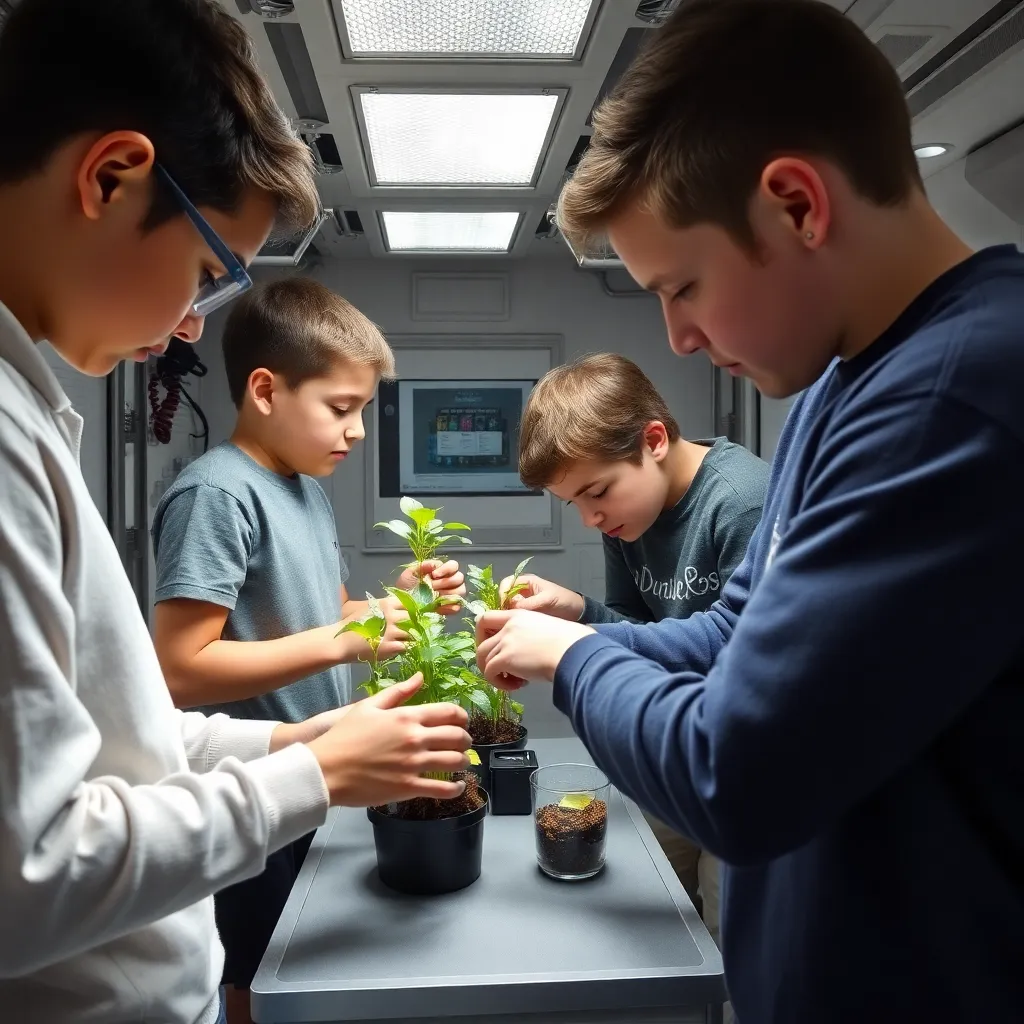

Students working on plant growth experiment in zero gravity.
Richland County, S.C. – Midlands Technical College (MTC) has earned a prestigious spot among 37 communities selected for the Student Spaceflight Experiments Program (SSEP) Mission 18. This unique opportunity involves four students, a lab technician, and a faculty advisor as they explore how microgravity affects the production of calcium oxalate crystals in edible greens.
The research experiment will take off on Monday at 9:29 p.m. aboard a SpaceX Dragon capsule from the Kennedy Space Center in Florida. Those interested in witnessing the launch can find information on where to watch it online.
The focus of the research centers around the impact of microgravity on plants, specifically the production of calcium oxalate, which is known to contribute to kidney stones. With long-duration space missions becoming more common, this research is critical to understanding how to grow edible plants in space. Spinach is one type of green that produces calcium oxalate, and in a microgravity environment, the risk of kidney stones may increase.
The MTC team consists of a diverse group of individuals tasked with conducting this experiment. They are among a select few, as only 42 students and 13 teams were initially considered for this program. The final group represents the first and only college in South Carolina to participate in the SSEP.
Once the experiment reaches the International Space Station (ISS), astronauts will conduct the research for approximately six weeks. Following the experiment’s conclusion, the research materials will return to Earth, where the MTC team will analyze the results. They will also compare their findings to a control experiment that remains on the ground throughout the process.
After analyzing the data, the MTC team plans to present their findings at a conference usually held at the Smithsonian National Air and Space Museum in Washington, D.C. This opportunity not only allows the students to showcase their hard work but also contributes to a broader understanding of space agriculture.
The selection of Midlands Technical College for this mission highlights the importance of scientific inquiry in space exploration. As researchers seek to make sustainable food sources available for astronauts, the results from this experiment could prove invaluable for future missions beyond Earth. The community looks forward to supporting the students as they undertake this groundbreaking project.
News Summary Multiple wildfires are currently spreading across North and South Carolina, prompting a state…
News Summary Columbia, South Carolina, witnessed a significant event on March 7, 2025, as Brad…
News Summary Columbia, South Carolina, is gearing up for a significant winter storm expected to…
News Summary In Newberry County, South Carolina, a manhunt is underway for 20-year-old Landon Major…
News Summary In a landmark case, the U.S. Justice Department has filed an antitrust lawsuit…
News Summary Following the devastation of Hurricane Helene, the Carolinas face significant power outages affecting…